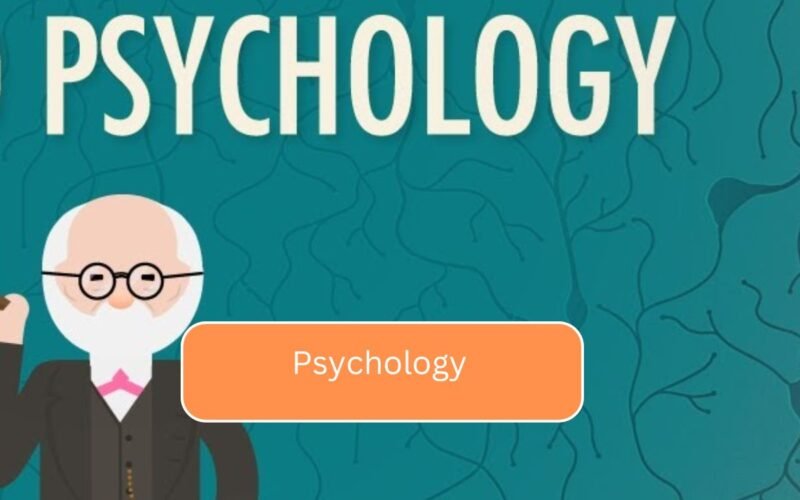Psychology is the scientific study of the mind and behavior, exploring how individuals think, feel, and act in different situations. It combines research, theory, and practical applications to help understand human experiences, improve mental health, and enhance overall well-being.
What is Psychology?
Psychology examines mental processes, emotions, and behavior patterns to understand why people behave the way they do. It applies insights from biology, social sciences, and neuroscience to address personal, social, and professional challenges.
Key Branches of Psychology
- Clinical Psychology:
- Focuses on diagnosing and treating mental health disorders
- Applications: therapy, counseling, and psychological assessments
- Cognitive Psychology:
- Studies mental processes such as memory, perception, and problem-solving
- Applications: improving learning methods, decision-making, and human-computer interaction
- Behavioral Psychology:
- Explores how behavior is influenced by environment and experience
- Applications: behavior modification, habit formation, and therapy
- Developmental Psychology:
- Examines psychological growth across a person’s lifespan
- Applications: education, child development, and gerontology
- Social Psychology:
- Studies how individuals are influenced by society and group interactions
- Applications: marketing, organizational behavior, and conflict resolution
- Industrial-Organizational Psychology:
- Focuses on workplace behavior and improving organizational efficiency
- Applications: employee training, recruitment, and performance management
- Neuropsychology:
- Explores the relationship between the brain and behavior
- Applications: neurological rehabilitation, brain injury research, and cognitive therapy
Importance of Psychology
Psychology plays a vital role in understanding human behavior and promoting mental health:
- Mental Health: Provides tools for therapy, stress management, and emotional well-being
- Education: Enhances learning strategies and child development
- Workplace Efficiency: Improves productivity, employee satisfaction, and leadership skills
- Social Understanding: Helps in understanding social behavior, relationships, and cultural influences
- Scientific Research: Contributes to neuroscience, behavioral studies, and applied sciences
Skills Required in Psychology
Professionals in psychology need a combination of analytical, interpersonal, and research skills:
- Strong observational and analytical abilities
- Excellent communication and empathy
- Critical thinking and problem-solving skills
- Research methodology and statistical analysis
- Understanding human behavior and ethical considerations
Career Opportunities in Psychology
Psychology offers diverse career paths across multiple sectors:
- Clinical Psychologist or Counselor
- Educational Psychologist
- Industrial-Organizational Consultant
- Researcher or Academic in Psychology
- Forensic Psychologist
- Sports Psychologist
- Neuropsychologist
- Human Resources Specialist
The Future of Psychology
With growing awareness about mental health, advances in neuroscience, and technology-driven therapies, psychology is becoming increasingly significant. Fields such as cognitive neuroscience, artificial intelligence in mental health, and positive psychology are shaping innovative approaches to understanding and improving human behavior.
Conclusion
Psychology is a dynamic and impactful field that helps individuals and society understand human behavior and mental processes. For those passionate about human minds, emotional well-being, and problem-solving, psychology offers rewarding opportunities to make a positive difference in people’s lives while advancing scientific knowledge.



